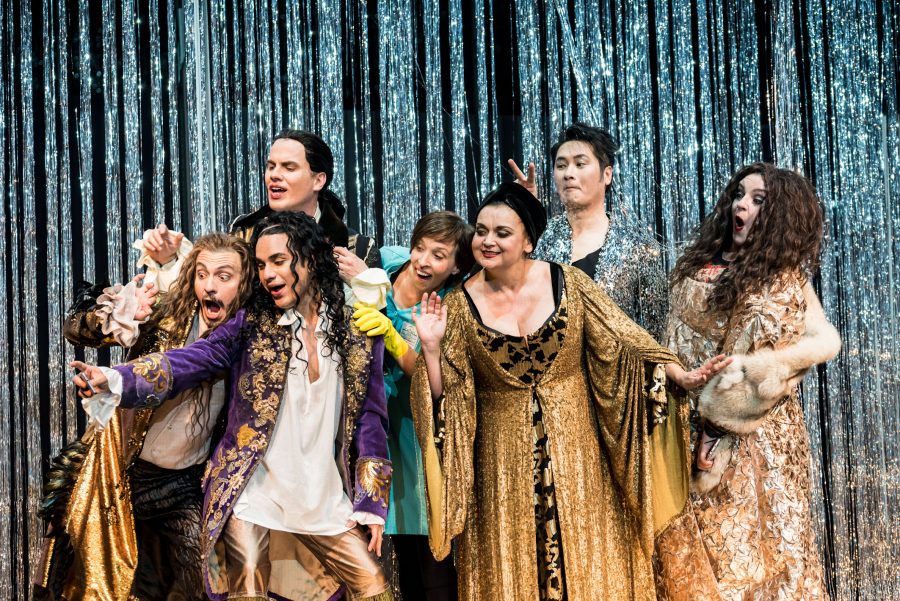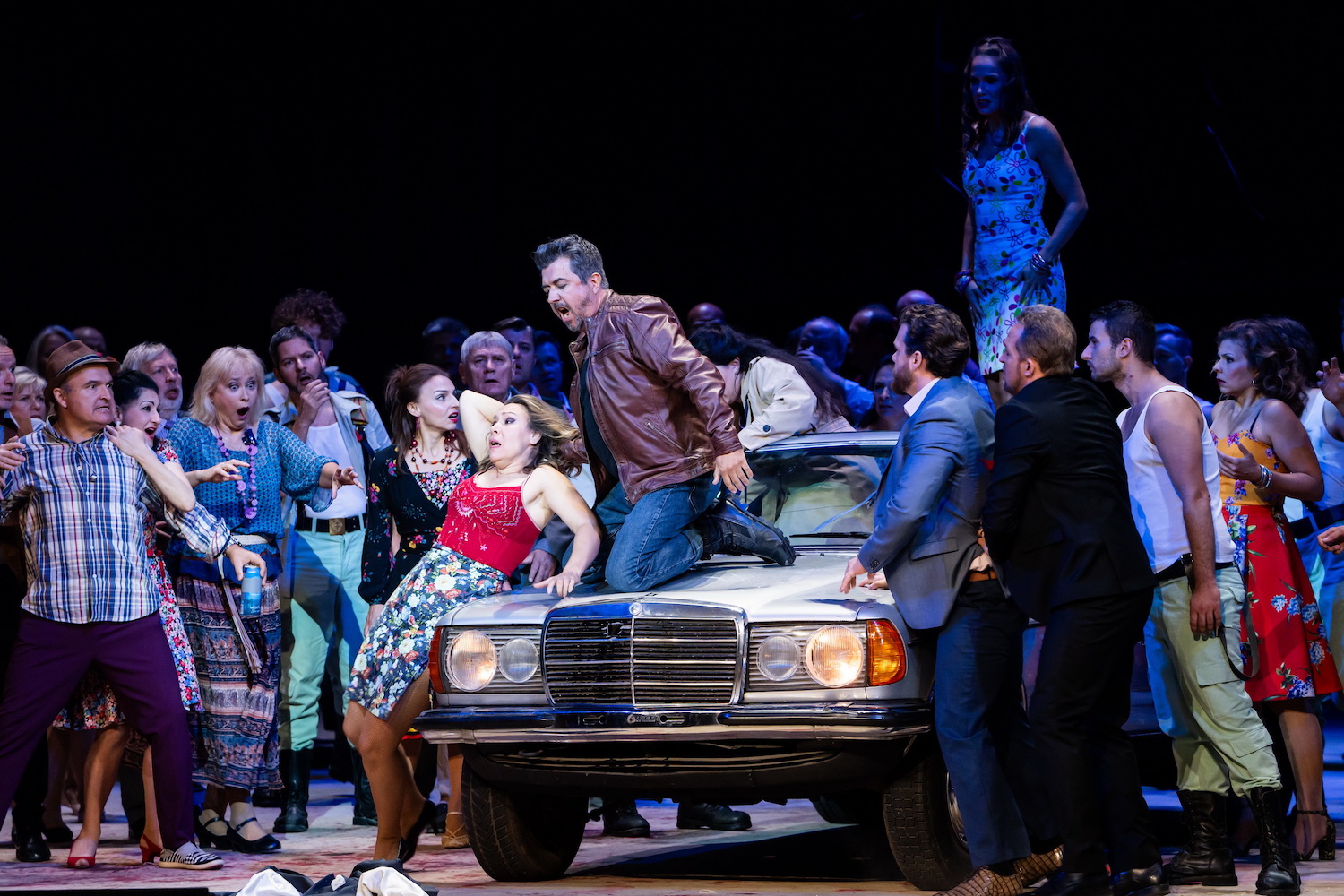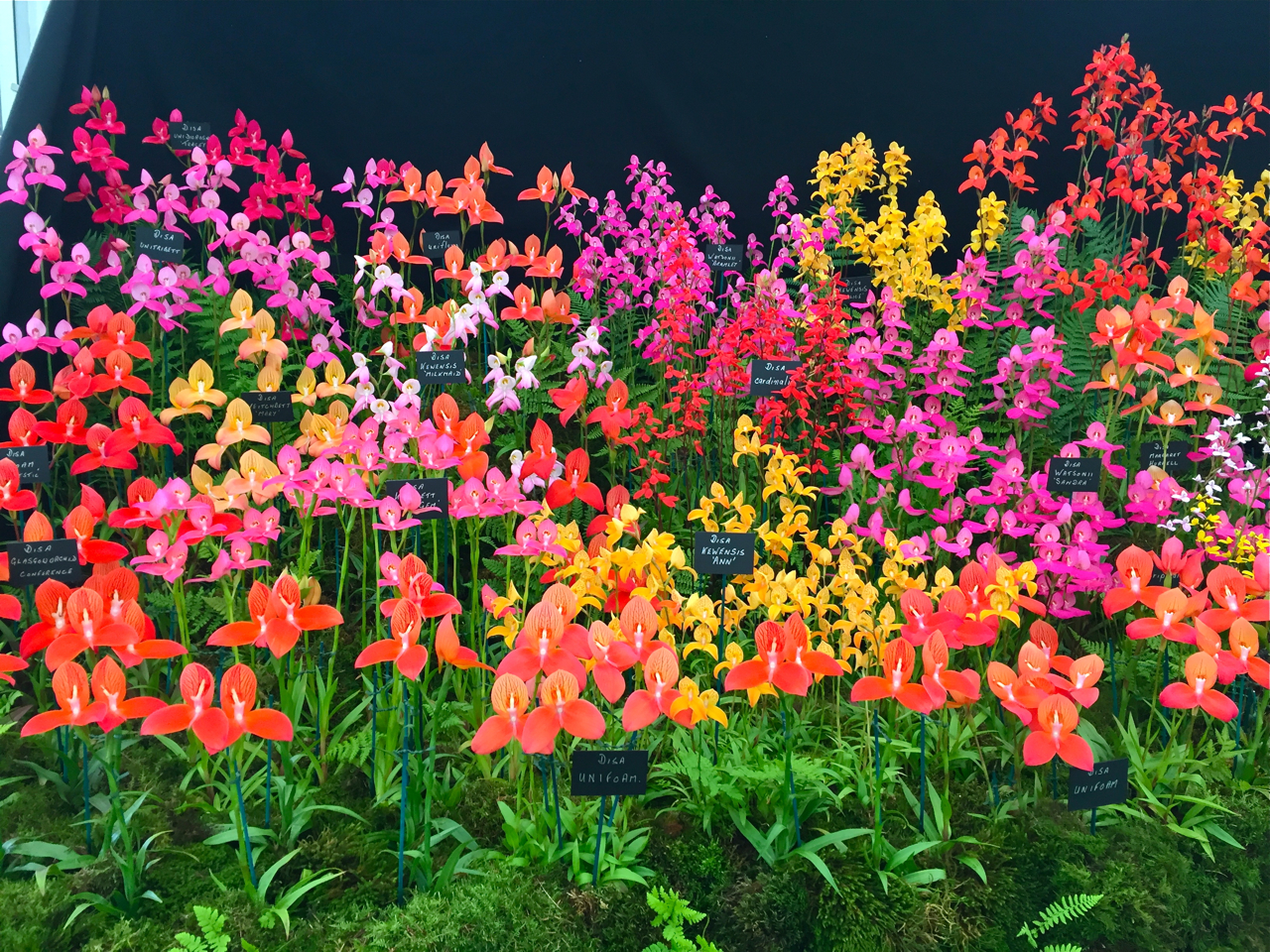The Handel festival has taken place on an annual basis in the composer’s birthplace Halle, Saxony-Anhalt, since 1952. This year’s premiere of the original Italian version of the opera Berenice means that all of Georg Friedrich Händel’s 42 operas have been staged in Halle, which is a feat that no other city can boast (according to the festival organisers). This Handel festival (there are two others in Germany) features many local productions, but this year some of the baroque genre’s most celebrated singers are visiting Halle : Joyce DiDonato, Magdalena Kožená, Nathalie Stutzmann and Max Emanuel Cencic are among the solo performers.
An anti-German clique, absurdly with the support of the Prince of Wales (an Hanoverian!), started the Opera of the Nobility company in London. Händel’s company, the Royal Academy of Music, couldn’t compete with the star-studded casts that the upstarts presented. This caused Handel a lot of stress and a month before the premiere of Berenice, Regina d’Egitto in 1737 the composer suffered a mild stroke or possibly even a heart attack. This meant that he neither conducted or attended the premiere of the new work. It is often reported that the opera was a failure with the public but there is no actual evidence of that. But it is a fact that the work until recently was rarely performed and was dismissed by most experts. The minuet from the overture continued to be popular in versions for different instruments. eleven years later Handel included the sinfonia from the third act in the overture to the famous Music for the Royal Fireworks.

The subject of this opera seria in three acts is the queen of Egypt, Cleopatra Berenice III. The libretto is only very vaguely based on historical facts. Rome, which rules over Egypt, wants Berenice for political reasons to marry her stepson Alessandro, who has actually fallen in love with her. The queen on the other hand loves Demetrio, but he is already romantically involved with her sister Selene. And to complicate it all there is the Egyptian prince Arsace who is in love with Selene. What ensues is a classic tale of thwarted romances and erotic encounters.
Berenice doesn’t display the musical fireworks that you can find in some other Händel operas and by his standards it is a fairly restrained piece. In that sense this exuberant staging at the Halle Opera seems to suggests the opposite.

Director Jochen Biganzoli sets the action firmly in today’s self(ie)-obsessed world. One can see parallels with vainglorious circles during the Baroque period, but this production at times works a little bit too hard at dragging the plot into modern times. The costumes are a mixture of contemporary and historic but the set is modern. Handel’s operas and oratorio have a tendency of becoming rather static and this is where the revolving stage comes to good use, particularly when it turns fast like a carousel with the characters chasing after each other through adjacent rooms. But the backdrop, which projects a mixture of various news media updates and messages sent in various forms between the characters, is in the long run a terribly distracting concept. It works for half an hour and then it gets tedious. Biganzoli charges the piece with narcissist and voyeuristic aspects and he is right in stressing sex as a political weapon
If you want to stay with the spirit of this opera it is closer to the Age of Enlightenment than our modern media age. But Biganzoli’s argument for a total visual overhaul of the plot is, all told, pretty successful.
With the risk of sounding patronising I was surprised by the high standard of some of the Halle Opera ensemble’s own singers. The soprano Romelia Lichtenstein might be slightly too old for the role of queen Berenice but her voice shows no signs of aging. She was splendidly furious in the Traditore, traditore aria and effortlessly nailed the bravura aria Chi t’intende which ends up as a duet between queen and the oboe. It was the production’s highlight and most tender moment when Romelia, dangling her legs in the orchestra pit, sat next to the standing (and rather brilliant) oboist. It all ended comically with the pair sharing a selfie.

Berenice’s sister Selene is turned into a comical character with a strong sex drive. The Ukrainian mezzo-soprano Svitlana Slyvia handles all that is thrown at her by the director with aplomb (including the heavily tattooed look) and it could easily have become a 3D printout of a cutout cardboard, but Slyvia manages to give the role plenty of depth. This in-house production features a number of guest stars. Demetrio is the most multi-facetted male character: he plots against Berenice, together with her younger sister Selene, while at the same time pretending to be the queen’s lover. The Italian countertenor Filippo Mineccia portrays the jealousy and lust for vengeance in the Su Megera, tesifone, aletto! aria very well. Demetrio’s Si, tra i ceppi aria is easily the opera’s most recognisable and here Mineccia didn’t let us down either. His rather ridiculous cool-lover-man act was greatly helped by his silly Kenny G perm wig.
I expect in the near future to hear more from Samuel Mariño, the young Venezuelan countertenor with a soprano voice. He more or less stole the show and got the biggest and longest applause at the end. His lovelorn Alessandro walked around with a naive smile while clinging on to a giant coke with a straw. It was almost inevitable that this little-boy-lost would win the queen’s hand in the end. In the voice department Mariño could still learn a trick or two, but he already has a remarkably assured stage presence and is still fairly inexperienced.
Conductor Jörg Halubeck doesn’t let the, at times frantic, action on stage affect the music and he keeps the very competent Handelfestspielorchester der Staatskapelle Halle in check. Handel’s arrangement was only for strings, oboes and basso continuo (in this case a harpsichord) and why Halubeck (?) deemed it necessary to add some modern style percussive effects to the score, is not clear. The score is quite descriptive as it is and I think it suffices that mobile ringtones played on harpsichord and other instruments have been added for comical effect.
But I do recommend you catching this production, particularly with this cast in place.
There will be two more performances during the Händel festival: June 2 and 7 at the Oper Halle.



